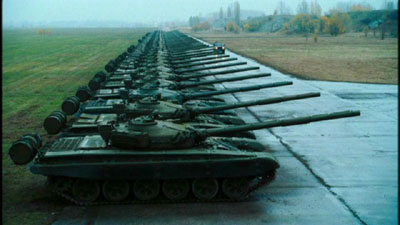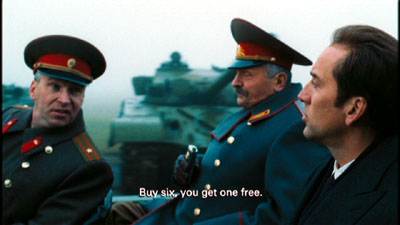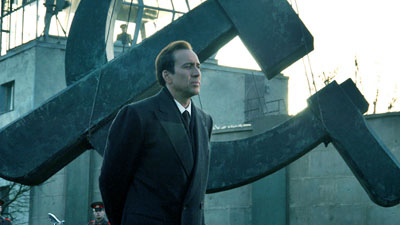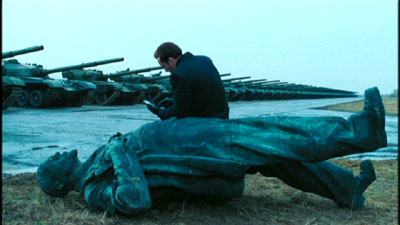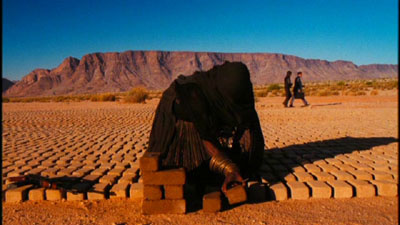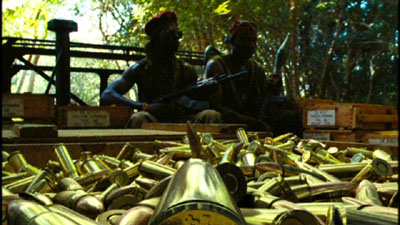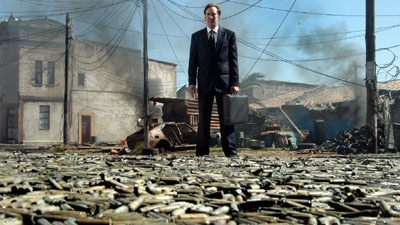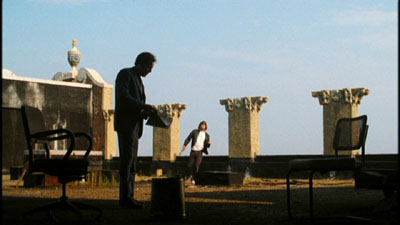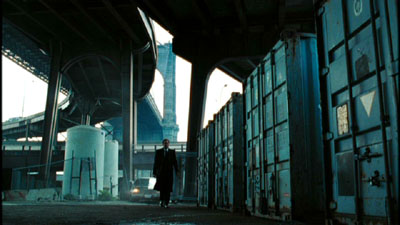Lord of War (2005) from Johnny Web (Uncle Scoopy; Greg Wroblewski) |
|
Let me make this perfectly clear. Lord of War is a great movie. It was a box office disappointment, drew mixed critical judgments, and will not get any post-season hardware. I am writing this during awards season in early 2006, with the Globes having past and the Oscar nominations on the way, and neither those organizations nor any of the other august award-bestowing bodies have given as much as a perfunctory nod to this film. Despite all that, it is in the same league as the award winners. It is a black comedy in which Nic Cage plays an arms dealer named Yuri Orlov and Ethan Hawke plays the Interpol agent obsessed with Yuri's capture. The script is brilliant in just about any way you can imagine. The situations are imaginative and bizarrely twisted, yet almost real because ... well, because the life of an arms dealer is pretty damned surreal to begin with. The attention to small details is impressive. The ending is a truly cool way to finish the cat-and-mouse chase, although the final outcome is annoyingly inconsistent with an important plot point established either. The narration by Cage is hilarious, yet often very poignant, as the best black comedy can be when handled correctly.
The film's visual imagination is a perfect match to the spirit of the script. Not only is it inventive, with several outstanding scenes, but this is just a slickly-packaged and generally great-looking movie in general, and the director came up with some incredible location shots.
It looks so damned cool and is so funny that Elya ended up watching the rest of the movie with me after wandering in to tell me something. I pressed the pause button, and as I filled her in on what had transpired earlier, she was laughing out loud at my descriptions, and I was giggling while recalling it. Whether the film is picturing the massive fire sale of weapons which accompanied the fall of the Soviet empire, or the corruption and tragedy of Africa, it is simultaneously funny and heartbreaking. If Martin Scorsese had made GoodFellas about arms dealers rather than Mafiosi, and if Scorsese had a much better sense of humor, he would have made a movie very much like this. I don't know if I can give any filmmaker a better compliment than that. The critics that panned the film seemed to feel that it was a strident message movie - the kind of movie Michael Moore might make if he created fictional stories. I have these points in response:
In fact, I would argue that the film's biggest weakness is the exact opposite of what those critics complained about. The film is not too controversial or too preachy, but too obvious. I mean, are there many people out there who don't think that arms dealers are bad dudes? The film really has no lesson, although it often seems to think it is teaching one. While not unaware of that point, I chose to ignore it simply because I can't see any reason to create a rule that says "nobody can make fun of arms dealers." Given the absence of such a rule, the film does everything it should. It is both entertaining and emotionally involving, so it doesn't really need to be instructive. And if you also learn something from it ... well, so much the better. |
||||||||||||||||||||||
|
||||
|
||||
